
Sergio Ramírez Mercado is a Nicaraguan writer and intellectual who served in the leftist Government Junta of National Reconstruction and as Vice President of the country 1985-1990 under the presidency of Daniel Ortega.

Luisa Valenzuela is a post-'Boom' novelist and short story writer. Her writing is characterized by an experimental style which questions hierarchical social structures from a feminist perspective. She is best known for her work written in response to the dictatorship of the 1970s in Argentina. Works such as Como en la guerra (1977), Cambio de armas (1982) and Cola de lagartija (1983) combine a powerful critique of dictatorship with an examination of patriarchal forms of social organization and the power structures which inhere in human sexuality and gender relationships.
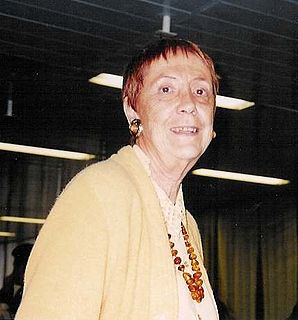
Angélica Gorodischer is an Argentine writer known for her short stories, which belong to a wide variety of genres, including science-fiction, fantasy, crime and stories with a feminist perspective.

Juan Tomás Ávila Laurel is an Equatoguinean author and activist. His parents were from the remote island of Annobón, off the West African coast. He is at the center of the feature award-winning documentary The Writer From a Country Without Bookstores,.
Miguel Angel Escotet is a social scientist, education administrator and author, emeritus professor at the University of Texas at Brownsville, of which he was dean of the College of Education. He was also secretary general of Organización de Estados Iberoamericanos and professor at Florida International University. He is since 2014 director general of corporate social responsibility of Abanca. He is also president of Fundación Galicia Obra Social, Afundación, and president of IESIDE, Afundacion's business school.

Amadeu Vives i Roig was a Spanish musical composer, creator of over a hundred-stage works. He is best known for Doña Francisquita, which Christopher Webber has praised for its "easy lyricism, fluent orchestration and colourful evocation of 19th Century Madrid—not to mention its memorable vocal and choral writing" characterizes as "without doubt the best known and loved of all his works, one of the few zarzuelas which has 'travelled' abroad".
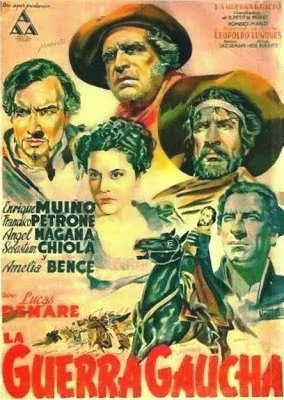
The Gaucho War is a 1942 Silver Condor award-winning Argentine historical drama and epic film directed by Lucas Demare and starring Enrique Muiño, Francisco Petrone, Ángel Magaña, and Amelia Bence. The film's script, written by Homero Manzi and Ulyses Petit de Murat, is based on the novel by Leopoldo Lugones published in 1905. The film premiered in Buenos Aires on November 20, 1942 and is considered by critics of Argentine cinema to be one of the most successful films in history. It won three Silver Condor awards, including Best Film, Best Director, and Best Adapted Screenplay, given by the Argentine Film Critics Association at the 1943 Argentine Film Critics Association Awards for the best films and performances of the previous year.
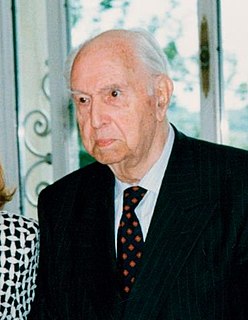
Pedro Laín Entralgo was a Spanish physician, historian, author and philosopher. He worked, fundamentally, on medical history and anthropology.

Luis (Leopoldo) Franco was an autodidact, a self-made intellectual, essayist, and poet.
Jacinto Rey is a Spanish novelist. After completing his studies of economics in Spain and the UK, he worked for several multinational companies in Germany and Switzerland. Polyglot and widely travelled, he currently lives in France.

Leonardo Garet is a Uruguayan writer, teacher, and member of the National Academy of Uruguay.
Enrique Labrador Ruiz was a Cuban journalist, novelist, essayist, short story writer, and poet.

Miguel Ángel Asturias Rosales was a Nobel Prize-winning Guatemalan poet-diplomat, novelist, playwright and journalist. Asturias helped establish Latin American literature's contribution to mainstream Western culture, and at the same time drew attention to the importance of indigenous cultures, especially those of his native Guatemala.
Inés Fernández Moreno is an Argentinian novelist who has published several stories and novels. She is a recipient of the Sor Juana Inés de la Cruz Prize.
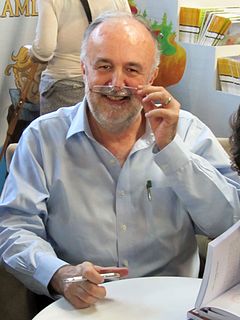
Marco Antonio de la Parra is a Chilean psychiatrist, writer, and dramatist. Many of his works, which are strongly influenced by the country's 1973–90 military regime, satirize the national condition through metaphors. He is the author of more than 70 titles translated into several languages, including plays, novels, storybooks, and essays.

Jorge Marcos Baradit Morales is a Chilean writer and the author of the bestselling trilogy Historia secreta de Chile.

Paulina Vinderman is an Argentine poet and translator.
Clara Obligado Marcó del Pont is an Argentine-Spanish writer.
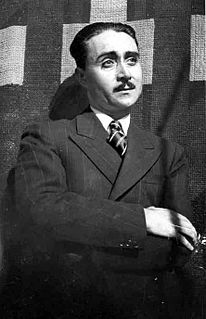
Óscar Castro Zúñiga was a Chilean writer and poet. His literary work covered both the lyrical genre and the narrative genre, much more realistic and close to the criollismo movement.
Siomara España Muñoz is an Ecuadorian poet, essayist, professor and literary critic. She is director of the area of Literature of the House of Culture Núcleo del Guayas.













